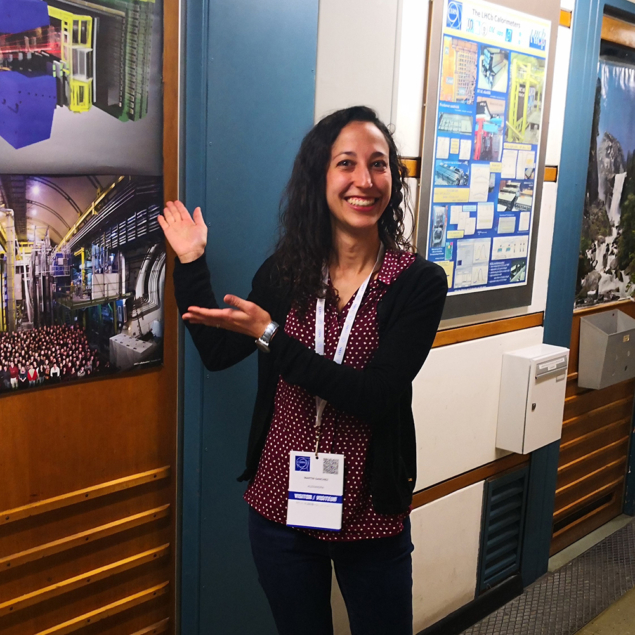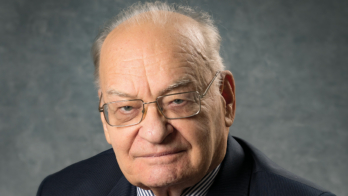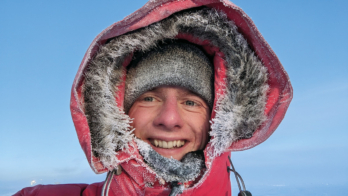Transferable skills in communication, teamwork and computing make particle-physics PhDs highly sought after by industry.

Alexandra Martín Sánchez began her studies in particle physics at the University of Salamanca, Spain, in 2003, during which she had an internship at the University of Paris-Sud at Orsay working in the LHCb collaboration. This prompted her to take a master’s degree in particle physics, followed by a PhD at Laboratoire de l’Accélérateur Linéaire (LAL) in Orsay. She worked on CP violation in B0 → DK*0 decays and hadronic trigger performance with the LHCb detector, and the subject fascinated her. She recalls with emotion witnessing the announcement of the Higgs-boson discovery in July 2012 from Melbourne, Australia, where the ICHEP conference was being held and where she was presenting her work: “Despite the distance, the atmosphere was super-charged with excitement.”
Getting a permanent position is particularly hard nowadays
Alexandra Martín Sánchez
Yet, one year later, Alexandra decided to leave the field. Why? “There were possibilities to do a postdoc in Marseille for LHCb, or elsewhere for other experiments, but I had already changed countries once and had created strong links in Paris,” she explains. “I loved working in research at CERN, and if it had been easier to continue in this way I would have, but getting a permanent position is particularly hard nowadays and you need to do several postdocs, often switching countries.”
After submitting her thesis, she consulted the careers office at Orsay to discuss her options. But it was word-of-mouth and friends who had already made the transition from research to industry that were the biggest help. After attending an IT careers fair in Paris in 2013, she was offered a job with French firm Bertin Technologies, who were looking for skills in scientific computing, in particular to offer consulting services for large groups including French energy giant EDF. Reckoning that this first step into industry could open the door to a large company, she took the plunge.
“Bertin Technologies had recruited me without having a clear idea regarding the profile of a particle-physics researcher, but they were immediately very satisfied with the way I worked. My recruiters were surprised to see me at ease in all aspects of the job, whether it was coding, functioning in teams or collaborating with other services.”
Moving on
After one year with the firm, Alexandra was recruited by EDF R&D, just as she had hoped for. Initially joining as a research engineer, five years later she is now project manager of open-source software called SALOME and leads a team of seven people. SALOME is used for industrial studies that need physical simulations, making it possible to model EDF’s operation of facilities and means of production, such as nuclear power plants or hydroelectric dams. “Computer science is the same as at CERN, even if it is applied to different data. Programming is also done in Python and C++. The code used is also that generated by researchers, that is to say, more or less ‘industrial’ and I easily found my way around, as we share the same development work habits. At CERN we work on software developed by CERN, and at EDF on software developed by EDF. In both cases it is also teamwork. The principles remain the same,” she explains.
“Large groups like EDF are of course fairly hierarchical companies, but CERN is also very large and very hierarchical. One can feel protected by such structures. On the other hand, they have a cumbersome administrative side, which means that things do not necessarily move as quickly as we would like. What I miss, however, is the international aspect of the collaborations. Today I’m thinking of staying at EDF because I’m happy there. The career paths are varied and the company motivates its engineers to change jobs every four or five years, unless they wish to become specialists in their fields.”
The thesis is a real professional experience!
Alexandra Martín Sánchez
The biggest lesson is that the skills she had learned during the process of obtaining a PhD in an environment like CERN are extremely transferable. “During my recruitment interviews, I highlighted my programming experience, my ability to communicate and present my work, and especially my ability to complete a thesis project over several years,” she says. “My advice to alumni looking for a job is to make the most of this PhD experience. Both sides of the job are of interest to recruiters: the technical part but also the communication and collaboration skills with researchers and engineers from all over the world. This makes a real difference from candidates coming from an engineering school: the thesis is a real professional experience!”





